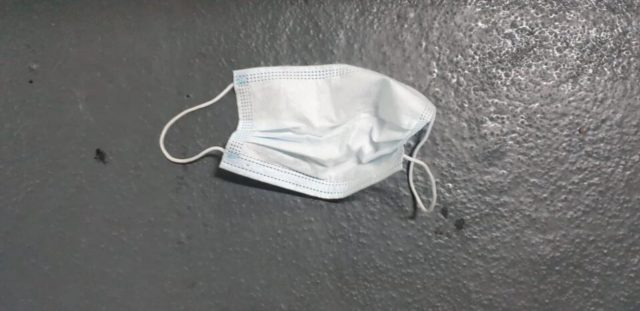Provinces including Gauteng and the Free State are currently grappling with the impact of a third wave.
South African provinces including Gauteng and the Free State are currently grappling with the impact of a third wave of Covid-19 infections while the Northern Cape is reporting a huge daily increase in residents testing positive.
Nationally, it is predicted that the third wave will not be as severe as the second wave, however, experts are saying that certain provinces might be harder hit than others.
New Covid-19 cases are doubling every 10 days in Gauteng as the province is witnessing its sharpest increase. Cases have increased by more than 60% compared to a week ago.
A senior researcher at the Council for Scientific and Industrial Research (CSIR), Dr Ridhwaan Suliman, said the Northern Cape was currently reporting its highest level of cases.
The outbreak is considered to be large in relation to the size of its population and remains on an upward trend.
The Minister of Health, Dr Zweli Mkhize, announced an additional 484 people testing positive for Covid-19 in the Northern Cape on Monday. This brings the total cumulative to 47 932 people in the Province.
The following changes were made due to data verification:
– Six (6) previously confirmed cases that were wrongly allocated to the Province have been removed.
– Four (4) previously confirmed cases have been re-allocated back into the Province.
According to the minister, Frances Baard continues to record the highest infections, on Monday 216 cases were reported in the district, followed by Pixley ka Seme (133), ZF Mgcawu (102), JT Gaetsewe (21), and Namakwa with 12 cases.
“Today (Monday), there were six (6) newly recorded Covid-19-related deaths that occurred in the last 72 hours. These new deaths are from: 2 x Frances Baard, 1 x ZF Mgcawu and 3 x Unallocated. The Province total cumulative deaths increases to 1 027.
“We convey our sincere and heartfelt sympathy to the families and loved ones of the departed.”
He added that the number of total active cases is currently standing at 7 938.
“There were 116 people reported to have recovered from the disease, including recoveries from previous months due to delays in reporting. The Province average recovery rate stand at 81%, representing a cumulative total of 38 965 people who have recovered from Covid-19,” Mkhize said.
According to the daily statement released by the Minister of Health on Monday, 300 people were vaccinated as part of the ongoing Phase II Vaccination Programme targeting people aged 60 years and older.
“A total of 2 009 people have been vaccinated so far since the start of the Phase II on 17 May 2021.
“The total number of Healthcare Workers vaccinated in the Province during Phase I, is currently standing at 9 502 since the vaccination campaign started on 17 February 2021,” the statement said.
South Africa recorded more than 4 200 new cases on Saturday, which is the highest since early February. The country’s daily positive tests are just under 10%.
Looming third wave sparks alcohol ban debate
With the infection rate peaking across the country, several organisations have called for a limit on availability of liquor in the country during the impending third wave.
The South African Alcohol Policy Alliance (Sapaa) said it was best to act sooner rather than later and that the government should not wait until the health system became overburdened before restrictions were introduced.
The alliance has called for a number of measures to be introduced to stem a third wave of Covid-19 infections:
These include temporarily imposing zero breath- and blood-concentration levels for drivers, banning all alcohol advertising and special offers, and prohibiting alcohol-fuelled party events.
Meanwhile, the National Liquor Traders Council (NLTC) have called for a meeting with President Cyril Ramaphosa to discuss the possible restrictions.
The council said if there are to be any restrictions, they should be clearly explained and have a clear end date.
Second dose of Pfizer vaccine may be delayed by up to 3 months
South Africans may only be able to get their second Pfizer vaccine three months after their first shot.
The second dose was originally planned to be delivered three weeks after the first.
South African citizens aged 60 and older started receiving the two-shot Pfizer Covid-19 vaccine last week Monday as government launched phase 2 of the national vaccine roll-out.
So far the country has received 975 000 Pfizer doses, and will have about 1.3 million doses by the end of the month.
According to a new UK study, delaying the second dose of Pfizer’s vaccine could help people produce more antibodies against the virus.
Several countries, including Britain, France, the US and Canada, have extended the interval between the first and second doses of Pfizer and Moderna vaccines from six weeks up to maximum of four months if vaccines are in short supply.








